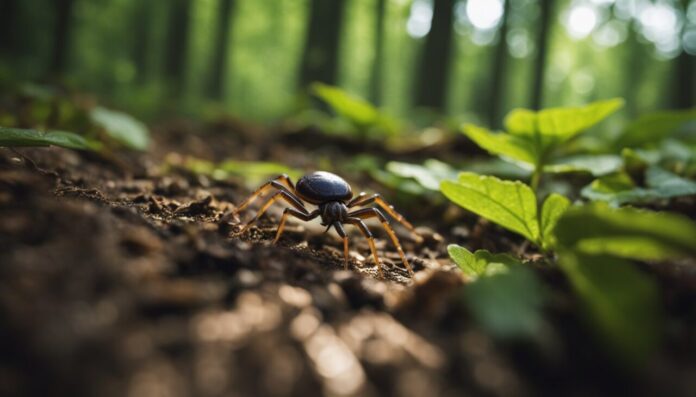
Ticks are small animals (arachnids) that feed on the blood of other animals, including humans.
And while they are certainly annoying creatures to many, they actually play a role in the ecosystem. Some would say – even important role.
However, have you ever wondered what would happen if ticks went extinct?
This question may seem dumb, but it is worth considering the potential consequences of such an event.
Ticks are known to carry a variety of diseases, including Lyme disease, Rocky Mountain spotted fever, tick-borne encephalitis and many others.
If ticks were to go extinct, the number of cases of these diseases would decrease significantly.
Additionally, ticks are a food source for many animals, including birds, reptiles, and some mammals.
So, certainly, those animals that feed on ticks would be impacted?
Yes, in one way, but we need to explore more.
In this article, we’ll dive deep into the consequences of hypothetical tick extinction.
See also:
Interesting Fact: Some fossil records suggest that ticks have been around for at least 90 million years, and some species are believed to have fed on dinosaurs.
Ecological Impact
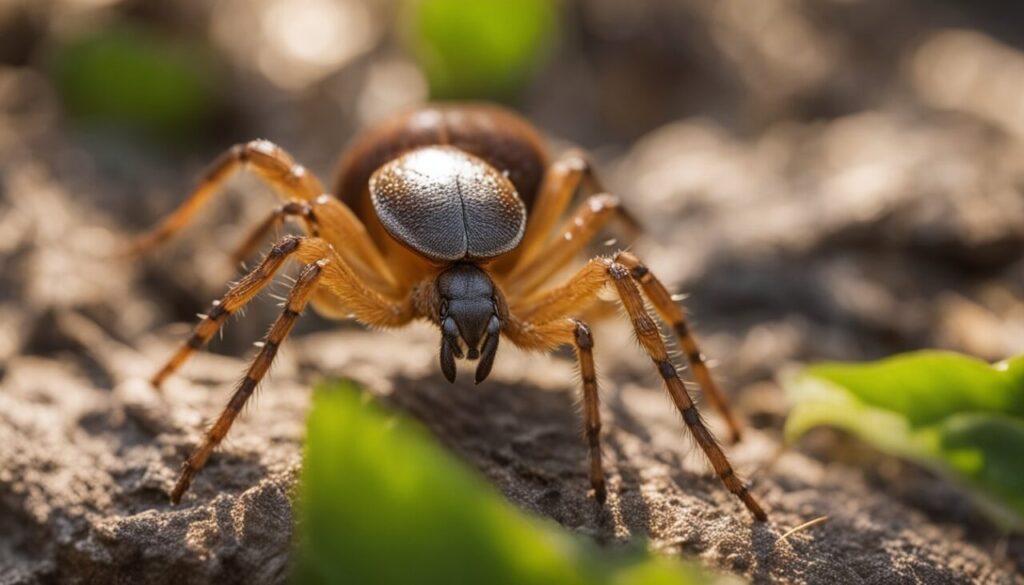
As mentioned, ticks play a semi-important role in the ecosystem, and their extinction could have ecological consequences.
Here are some potential impacts:
Predator-Prey Relationship
Ticks serve as a food source for many animals, including birds, reptiles, and mammals.
If ticks were to go extinct, it could disrupt the food chain and lead to population declines in some species.
For example, birds that rely on ticks as a food source may struggle to find enough food to survive.
On the other hand, predators that feed on would have to find different food sources.
However, none of the animals are 100% reliant on ticks, so therefore all animals would survive without them, but certainly some would struggle.
For example, if you take barley or beef from us humans, we could certainly survive but some people would have challenges in finding the right food if they previously enjoyed big amounts of beef or barley.
Interesting fact: In some areas, opossums are known as "tick vacuums" because they eat so many ticks. A single opossum can eat up to 5,000 ticks in a season!
Biodiversity Changes – Deer Overpopulation

Ticks also play a role in maintaining biodiversity by controlling the populations of their hosts.
Without ticks, certain species of animals could become overpopulated, leading to competition for resources and potential ecosystem downfall.
For example, without ticks to control their populations, deer could become overpopulated and damage the ecosystem by overgrazing.
Namely, deer are one of the primary hosts for ticks, and an increase in tick population can have a huge impact on their health.
Ticks feed on deer blood, which weakens them and can cause anemia. In addition, ticks can transmit diseases to deer, such as anaplasmosis and babesiosis, which can be fatal.
And so, if ticks were to go extinct, the deer population would increase massively. With fewer ticks to feed on them, deer would be healthier and more able to reproduce.
And as with everything in nature – you don’t want to have anything in excess because then other animals and ecosystems suffer.
Impact to Forests

Ticks also have an indirect impact on the forest floor.
When ticks feed on animals, they take in blood, which they use to lay eggs. As a result, they excrete waste, which contains nutrients essential for plant growth.
Without ticks, the nutrient cycle could be disrupted, leading to decreased plant growth.
However, the impact would be rather small.
Human Health Implications
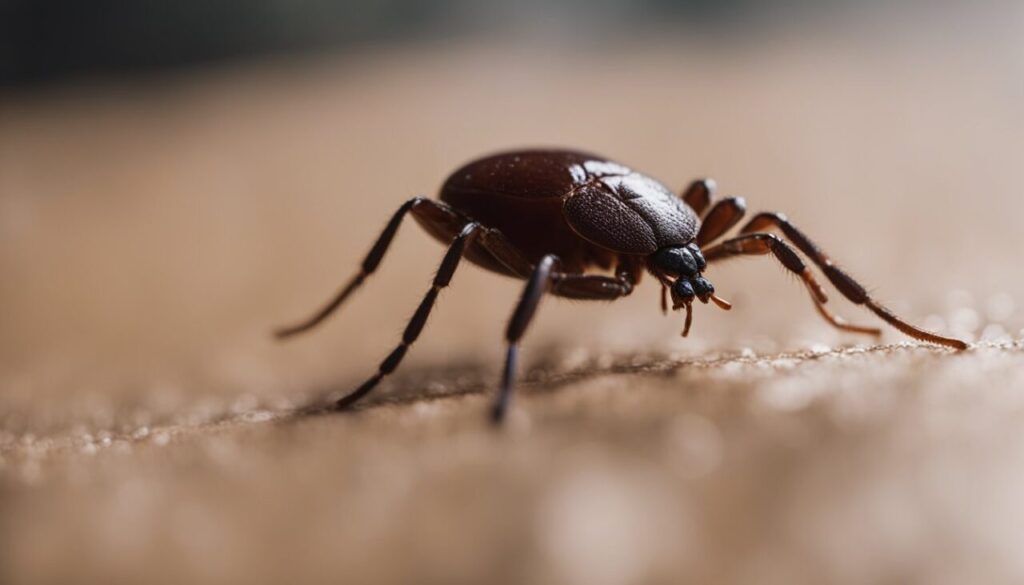
As we’ve already mentioned, ticks can cause a variety of diseases in humans, and one could argue that we would certainly be healthier and happier without ticks.
So let’s explore the details.
Here are some potential implications:
Tick-Borne Diseases
Ticks can transmit the following diseases to humans:
- Lyme disease
- Babesiosis
- Ehrlichiosis
- Rocky Mountain Spotted Fever
- Anaplasmosis
- Southern Tick-Associated Rash Illness
- Tick-Borne Relapsing Fever
- Tularemia
And while some of those diseases can be spread in some other ways like through infected rodent feces, those cases are rather rare.
Therefore, we could conclude that all the abovementioned diseases would cease to be transmitted to humans in case of thick extinction.
So far so good.
For us at least.
Allergic Reactions

Some people can have allergic reactions to tick bites, which can range from mild itching to severe anaphylaxis.
If ticks were to go extinct, the incidence of these reactions would obviously decrease.
However, we also need to note that other arthropods, such as mosquitoes and fleas, can also cause allergic reactions.
Interesting fact: According to a study published in the Journal of Allergy and Clinical Immunology, up to 10% of people in the United States may be allergic to tick bites.
Economic Effects

Healthcare Costs
With the extinction of ticks, the number of cases of tick-borne diseases would decrease almost completely, leading to a reduction in healthcare costs.
According to a study, the annual cost of Lyme disease in the United States alone is estimated to be around $1.3 billion. With the elimination of ticks, this cost would be eliminated as well.
Now, think about all the other diseases that we mentioned previously, and we could easily say that with thick extinction, healthcare could save 10 billion dollars in the United States alone.
Interesting fact: The saliva of ticks contains a natural anesthetic, anticoagulant, and anti-inflammatory agent that allows them to feed on their host without being detected.
Livestock Industry
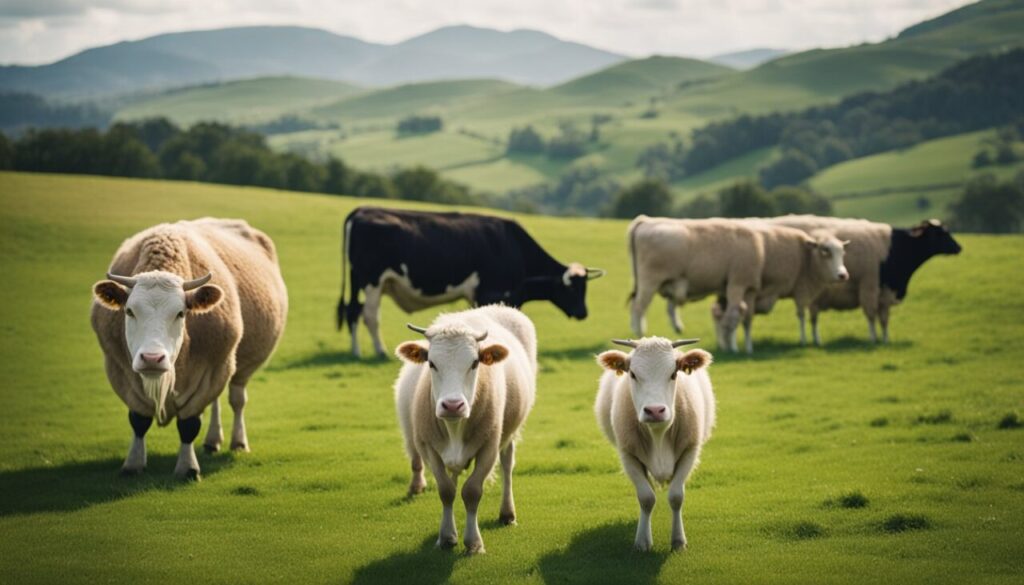
Ticks are a significant problem for the livestock industry, causing billions of dollars in losses every year. They transmit diseases to cattle, sheep, and other livestock, leading to reduced productivity and mortality.
With the extinction of ticks, the livestock industry would benefit greatly, leading to increased productivity and profitability.
Interesting fact: Ticks are more attracted to animals with dark fur or feathers than those with light-colored ones.
Conclusion
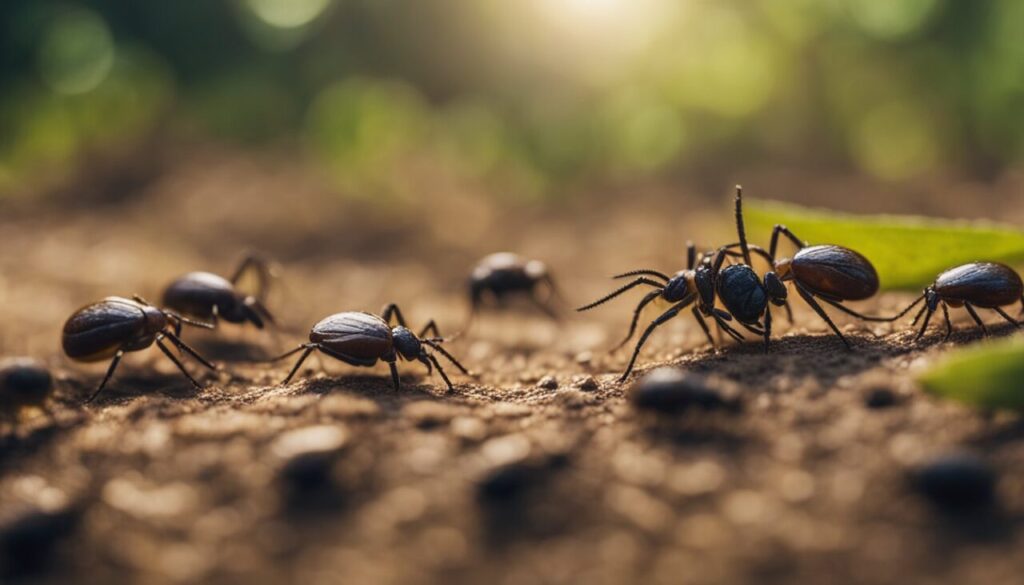
Ticks certainly play a role in the ecosystem, but their extinction would not have any catastrophic consequences.
While some species may suffer, others would thrive in their absence.
Additionally, the spread of tick-borne illnesses would decrease, which would be a significant benefit to human and animal health.
Additionally, ticks are rather annoying for humans and some people decide not to go to nature because of fear of potential tick bites.
All in all, a world without ticks would probably be a happier one.
Sure, deer would overpopulate some areas, and opossums would have to find another animal to feed on.
But that would not cause any significant problems to wider ecosystems.



























